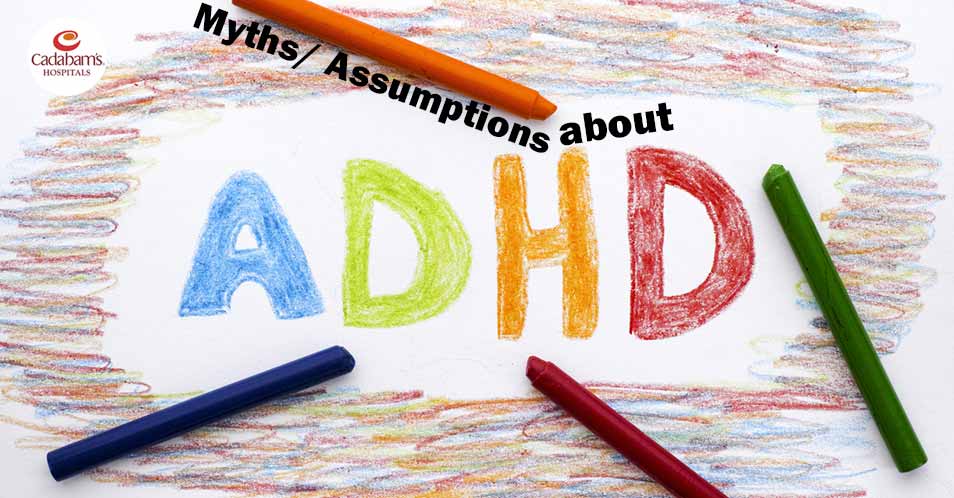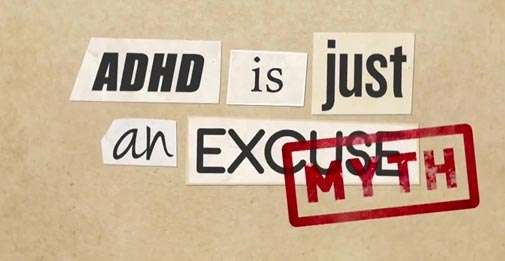Table of Content
ADHD Facts and Myths: What To Believe (And Not)
Attention Deficit Hyperactivity Disorder is one of the most commonly diagnosed neurodevelopmental disorders in children. This mental disorder has a worldwide prevalence of around 5.3%, making it one of the most prevalent disorders experienced by children. You cannot just grow out of this disorder; instead, it needs to be treated. If left unattended, there can be some serious implications for your adult life. However, there are a lot of ADHD myths that need to be cleared out.
Children suffering from ADHD find it challenging to pay attention and control their impulsive behaviors. These can cause difficulties at home, school, or with friends. With effective and consistent treatment, a change can be developed in children’s behavior, allowing them to be more in control of their actions.
ADHD Myths and Facts in Children
Do you know ADHD affects certain areas of the brain that involve problem-solving, planning, understanding others' actions, and controlling impulses? Children with ADHD act without thinking. They are hyperactive and have trouble focusing.
Mostly all the children act this way, especially when they're anxious or excited. But did you know there are few assumptions about ADHD in Children or ADHD Myths? Below are some of the ADHD myths, along with key facts.
Kids with ADHD can’t focus on anything for a long time.
Children with ADHD often struggle with sustaining their attention on activities. However, with behavioral therapy and skills training, they can learn different techniques to maintain attention.
If a child isn’t hyperactive, they can’t have ADHD.
There are three types of ADHD: Predominantly Inattentive Subtype, Predominantly hyperactive-impulsive Subtype, and Combined Subtype. Different children fall into different brackets. Not all of them are hyperactive.
Only boys have ADHD.
Boys have a more hyperactive-impulsive type of ADHD, and girls have Inattentive ADHD. Although this is beginning to change, diagnoses for girls have risen 55 percent from 2003 to 2011, according to a study in the Journal of Clinical Psychiatry.
ADHD is only a problem in childhood, and it will go away.
ADHD is a legitimate diagnosis of a medical disorder. It is recognized even in its Diagnostic and Statistical Manual of Mental Disorders. Its primary symptoms are inattention, impulsiveness, and hyperactivity.
ADHD is caused by poor parenting.
When a child with ADHD disturbs their class, it's not because he hasn't been taught well by his parents. Rather, it's because he cannot control his impulses. The problem is the chemical imbalance in the brain.
ADHD and ADD are two different disorders.
ADD is an outdated term for what is now called ADHD. Both terms represent the same disorder.
Kids who take stimulant medications for ADHD are at higher risk for addiction.
Studies indicate that there is no connection between taking stimulant medications and developing a higher risk of addiction. It is just the opposite. Avoiding medications for ADHD increases the risk that the individual will abuse drugs or alcohol. Having the right treatment reduces this risk.
ADHD medication will change your child’s personality.
The proper type and dosage of medication can help reduce the symptoms of ADHD. However, there are no indications of it changing your child’s personality.
How is ADHD in Kids Treated?
Following are the treatment options that doctors use to help kids with ADHD:
- Stimulant Medications – These are the most common type of drugs used to treat ADHD. It works to balance the brain chemicals known as neurotransmitters. These drugs help in controlling the symptoms of ADHD in children.
- Therapy - This includes behavior therapy, social skills training, counseling, family therapy, and parent skill training. It is performed by a psychologist, psychiatrist, or other mental health professional.
- Lifestyle Changes - Changes in your day-to-day life can also help in managing the symptoms of ADHD. Some practices that parents can incorporate include -
- Be affectionate towards the children
- Work to improve their self-esteem.
- Communicate with them using simple words
- Be organized
Why Cadabams?
If you are looking for reliable treatment for attention deficit hyperactivity disorder, then Cadabam’s Hospitals is one of the reliable names to consider. With experienced psychiatrists, psychologists, therapists, counselors, and physicians on board, you can be certain of availing the best treatment for your child here.
After a thorough evaluation of the symptoms and overall health conditions, our group of medical professionals works together to create a personalized care plan for patients. To know more, book an appointment at Cadabam’s Hospitals. Call us at +91 97414 76476 or email info@cadabamshospital.com.
FAQs
What can cause ADHD in children?
Following are some of the reasons that can trigger ADHD in children –
- Genes and heredity
- Brain Anatomy and Function
- Prematurity
- Prominent head injuries
- Prenatal exposures
Can ADHD go away?
While the symptoms of ADHD can be improved over time, the condition is rarely outgrown. One needs to stick to the recommended treatment plan to improve the symptoms of ADHD.
Do the symptoms of ADHD get worse with growing age?
Aging can result in cognitive changes in both men and women. If during this time ADHD symptoms are not controlled, then adults will deal with a lifetime of memory struggles and issues related to cognitive functioning.
What food should be avoided when suffering from ADHD?
Food with high sugar content, caffeine, allergens, artificial additives, refined carbs, etc., should ideally be avoided by people with ADHD.
How Cadabam's Help you for Addiction?
- 410+ Professional Consultants
- 1,00,00+ Happy Faces
- 120+ Currently Seeking Treatments











